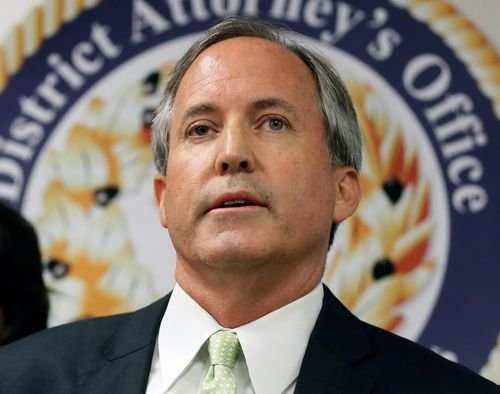The Texas attorney general taking Trump’s voter fraud conspiracies to the Supreme Court

Texas Attorney General Ken Paxton, who has fought in the courts for President Donald Trump’s causes before, has emerged as one of the final defenders of the President’s baseless claims of voter fraud in hopes of overturning the election.
Paxton on Tuesday brought a lawsuit to the Supreme Court against battleground states Wisconsin, Georgia, Pennsylvania and Michigan — states that Trump lost to President-elect Joe Biden, that would invalidate ballots cast by millions of voters. Trump also asked the court to intervene in Paxton’s lawsuit that is backed by 17 Republican-led states.
But this is not the first time the Republican and longtime defender of the President’s policies has taken up legal arms for Trump.
Earlier this year, Paxton battled Texas Democrats in the courts over their calls to expand access to voting by mail, a process Trump has claimed without evidence leads to widespread voter fraud, in the state because of the coronavirus pandemic. He has spearheaded a legal charge against the Affordable Care Act before the Supreme Court. Paxton has also supported a number of the Trump administration’s controversial policies, including a travel ban and its attempt to end the program protecting some undocumented immigrants brought to the US as children from deportation.
His latest legal challenge is not only a last-minute attempt to rescue Trump’s flailing chances at a second term in office, but it also comes as he faces accusations of crimes. This is also not the first time he has led a legal effort to the Supreme Court involving other states.
Top Texas officer and criminal allegations
Paxton served in the Texas statehouse for a decade and then state senate for less than two years before he launched his bid for Texas Attorney General in 2014 when now-Gov. Greg Abbott decided to run to succeed Rick Perry.
During his campaign, Paxton admitted to violating state securities law by soliciting investment clients for the firm of his friend and campaign donor. Though he was referring clients to his associate, he did not register with the state of Texas and later paid a $1,000 fine.
Months after becoming attorney general, he was indicted in 2015 by a grand jury on three counts — two charges of securities fraud in excess of $100,0000 and a third felony charge for allegedly advising or representing investors without properly registering, according to booking records. He pleaded not guilty to the charges, and his case has been delayed nearly five years following disputes between Paxton’s lawyers and prosecutors. He won reelection in 2018.
In October, Paxton was accused by seven top aides of bribery, abuse of office and other potentially criminal offenses. He denied the allegations to CNN and said the accusations were meant to obstruct an inquiry into alleged criminal behavior by other officials.
A longshot case before the Supreme Court
Paxton, the President and the Republican states backing the lawsuit are asking the court to block the electors from Wisconsin, Georgia, Michigan and Pennsylvania that would push Biden under the required 270-vote total to win. It includes several claims that have been rejected by state and federal courts regarding the legality of mail-in ballots and alleged voter fraud.
“Using the Covid-19 pandemic as a justification,” he wrote in the lawsuit, officials in the battleground states “usurped their legislatures’ authority and unconstitutionally revised their state’s election statutes.” Paxton said they had done so through “executive fiat” and pointed to mail-in ballots that he said were placed “in drop boxes” with “little or no chain of custody.”
There is no evidence of widespread voter fraud and key Republicans, including Texas Sen. John Cornyn, have opposed the effort. Benjamin Ginsberg, a Republican election lawyer and CNN contributor, also criticized the legal filings.
“I can’t imagine something that is less faithful to the principle of states’ rights than a Texas attorney general trying to tell other states how to run their elections,” Ginsberg said.
The Supreme Court also denied Pennsylvania Republicans’ request to block certification of the commonwealth’s elections results and other legal challenges by Trump campaign have largely failed.
Taking on the ACA and defending freedom of religion
He has spearheaded a legal charge against the Affordable Care Act, leading a coalition of Republican-led states who argued that after Congress cut the tax penalty to zero for those who lacked insurance as part of the year-end tax overhaul in 2017, the individual mandate was no longer tied to a specific tax penalty qnd had no legal underpinning. They also argued that because the individual mandate was intertwined with a multitude of other provisions, the entire law should fall, including protections for people with preexisting conditions. He asked the Supreme Court in June to declare the healthcare law “unlawful.”
As attorney general and a conservative, he has defended the free exercise of religion. He led a group of 20 states defending a Colorado baker who declined to make a wedding cake for a same-sex couple and filed an amicus brief with the US Supreme Court in 2017.
